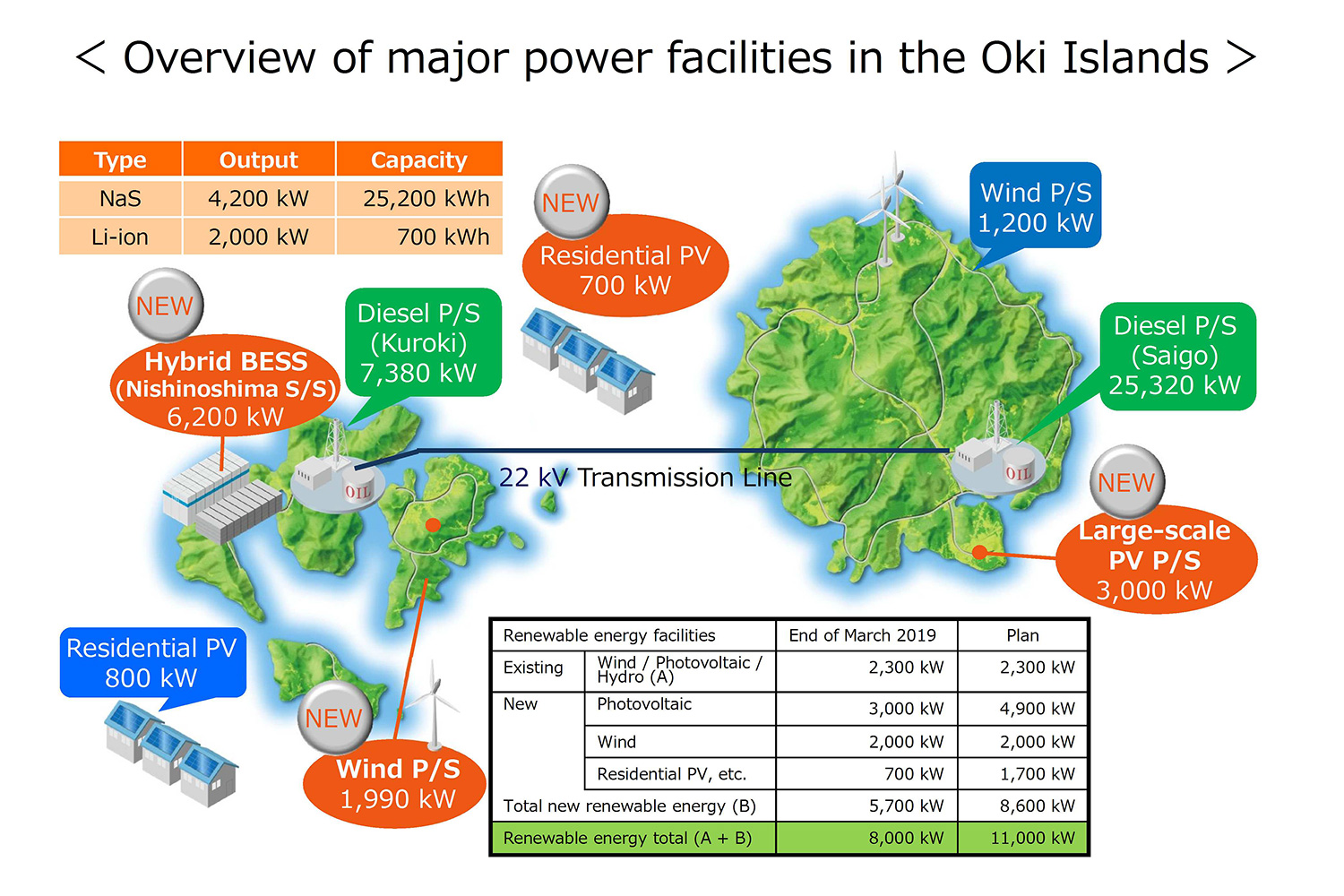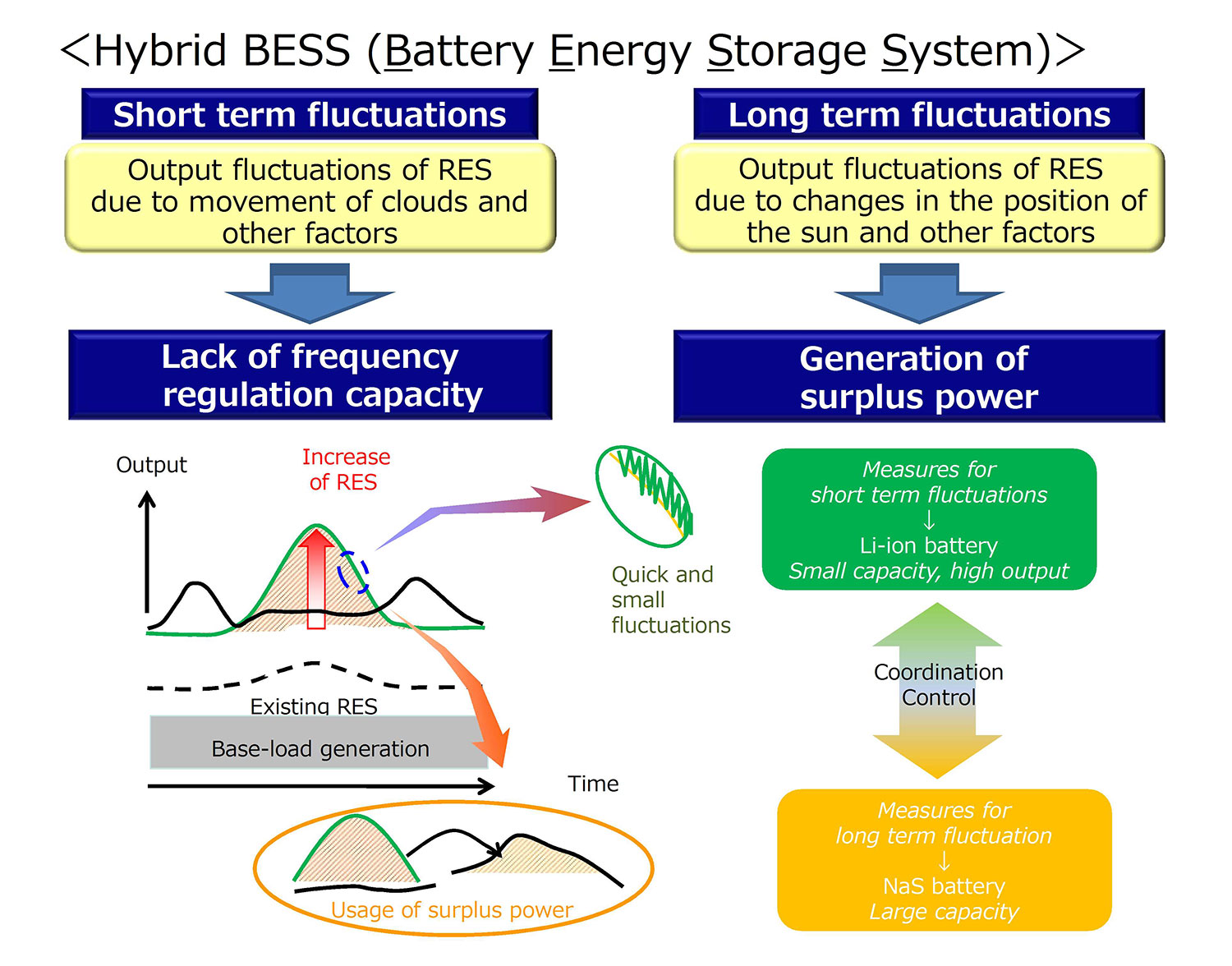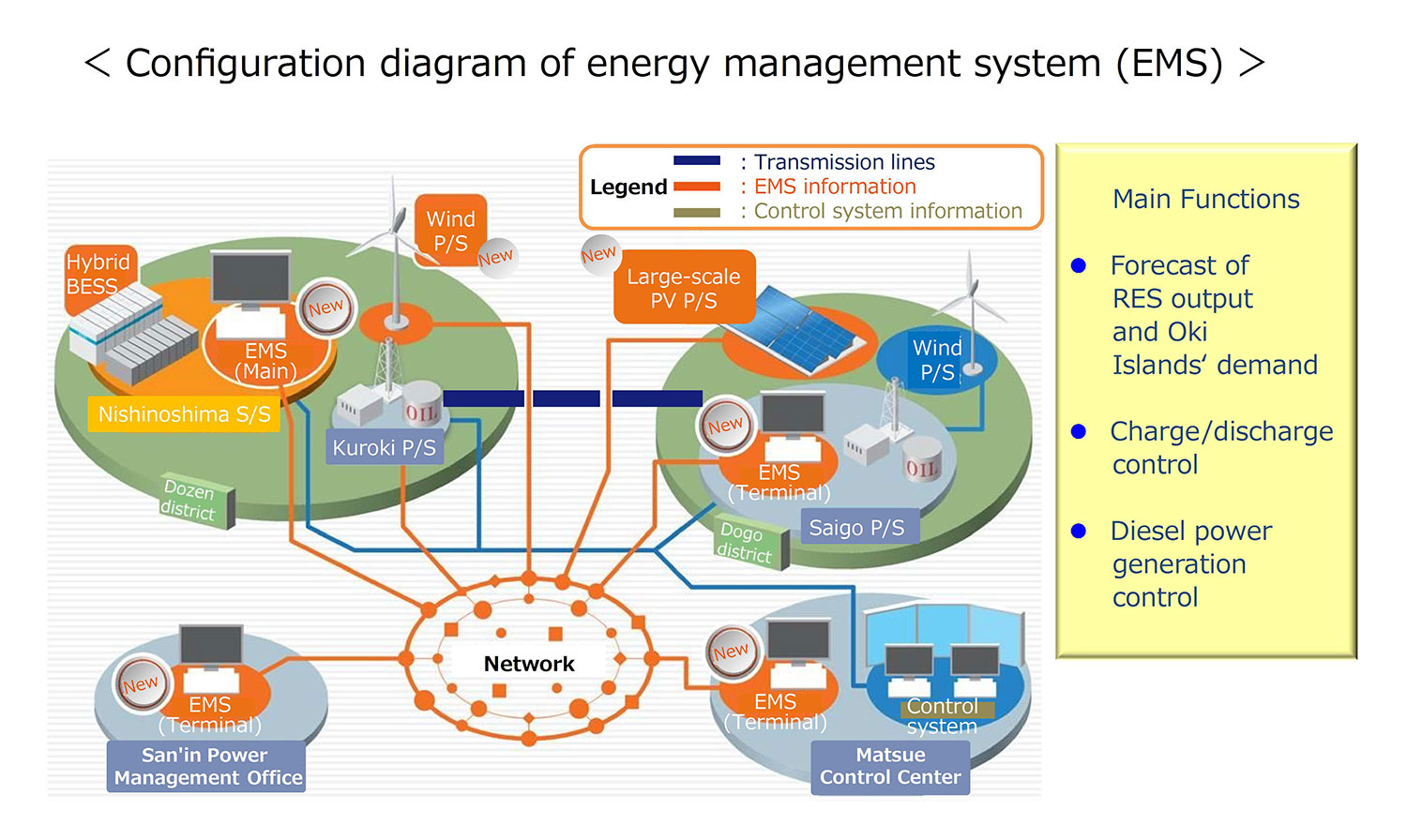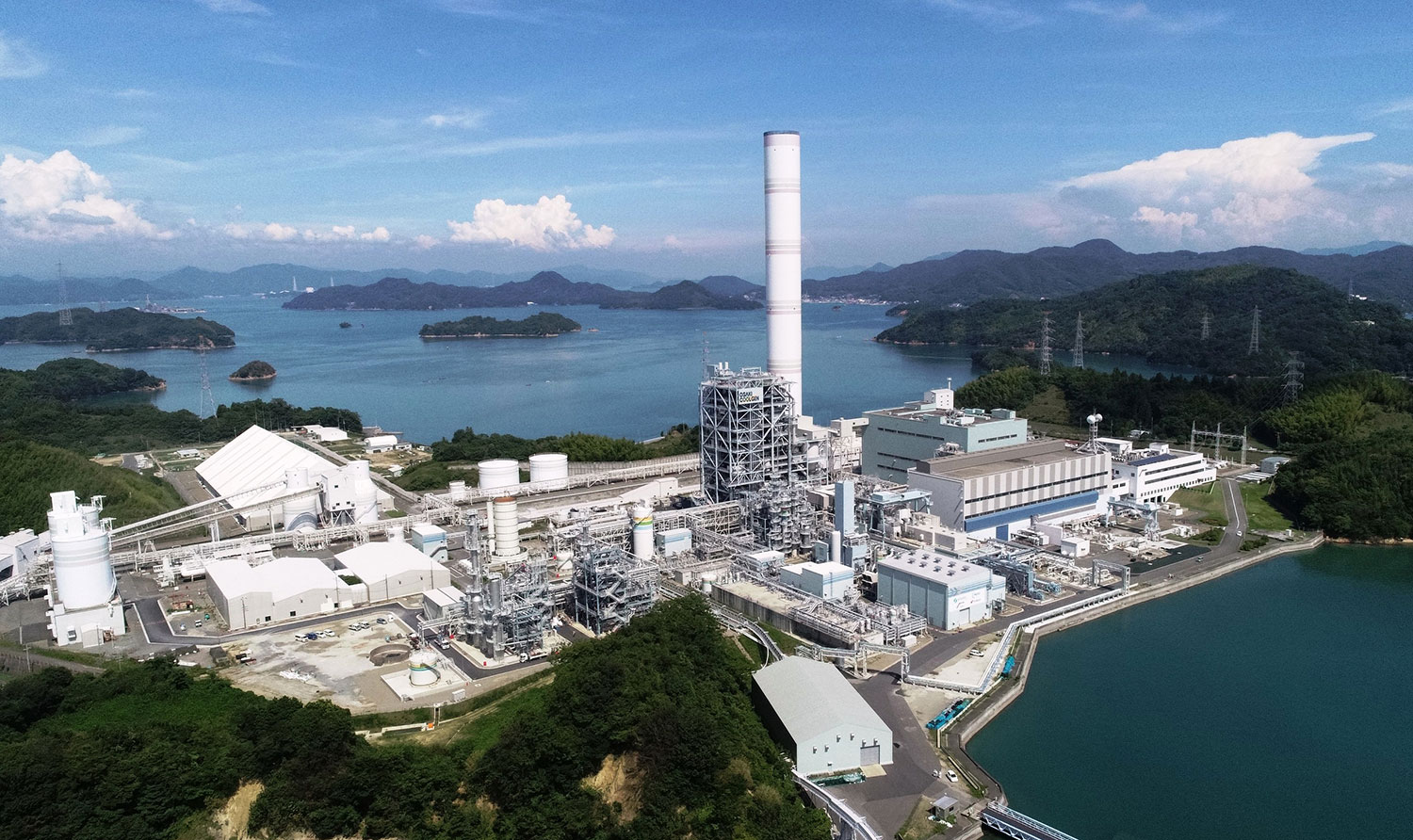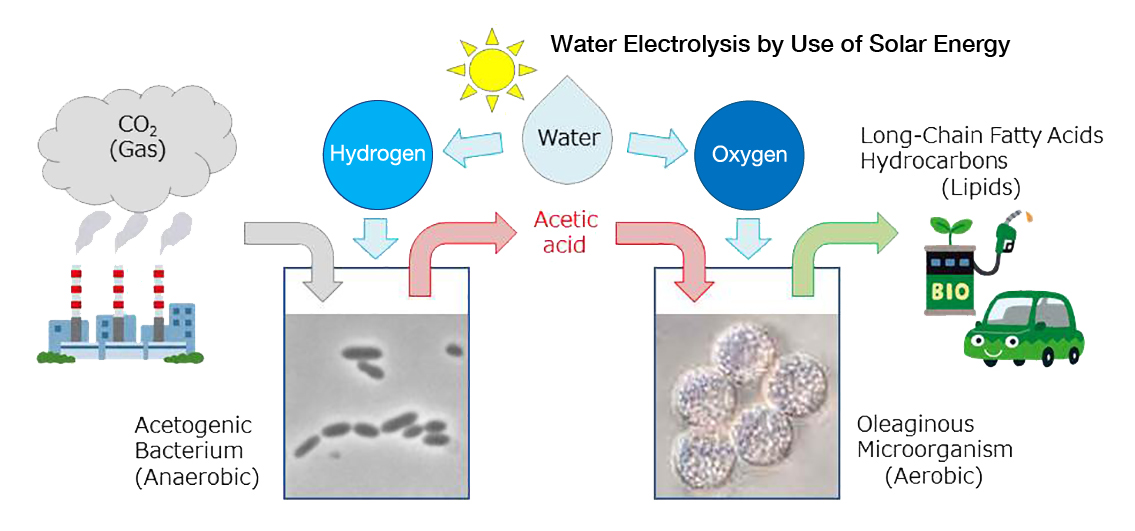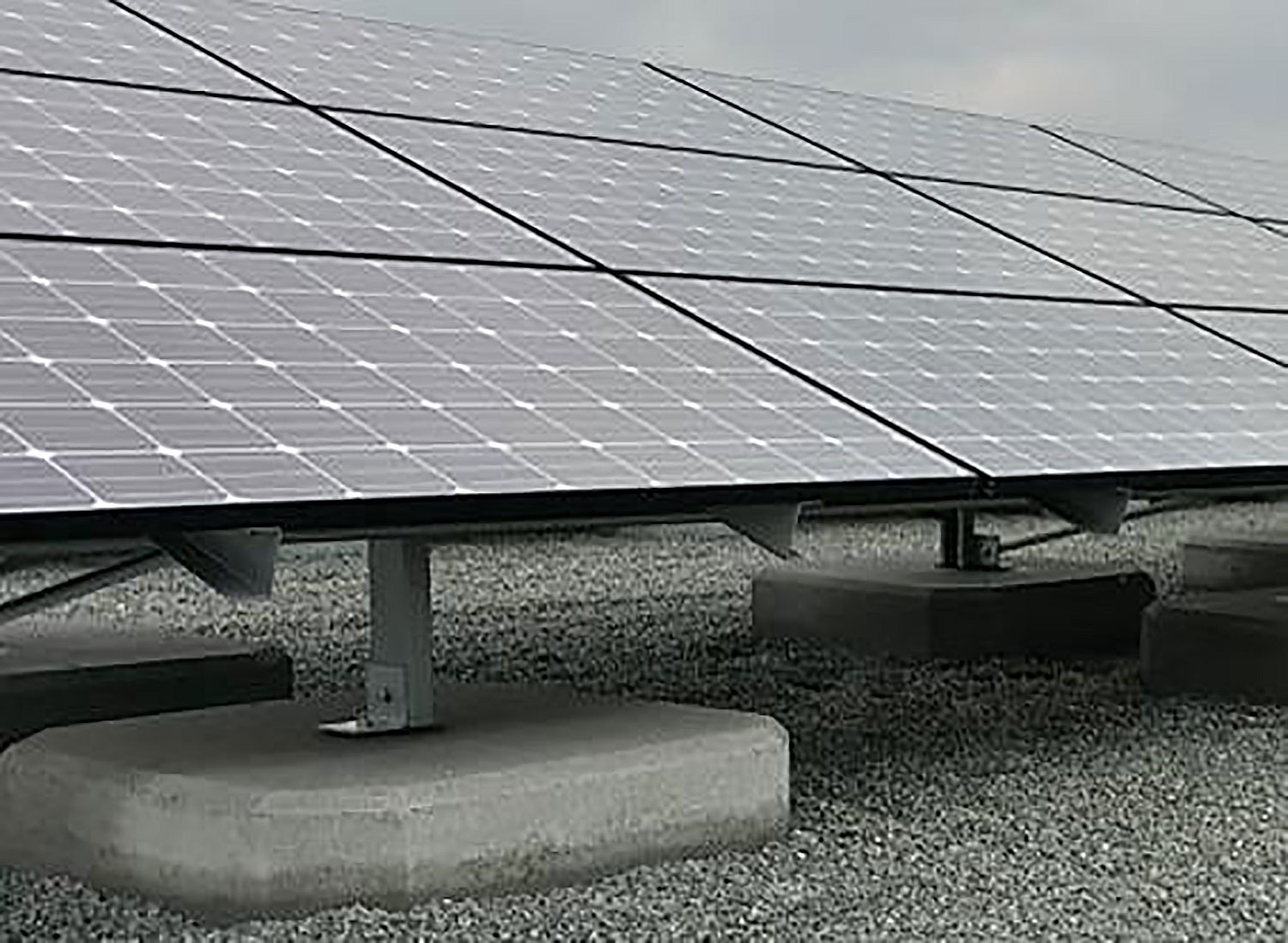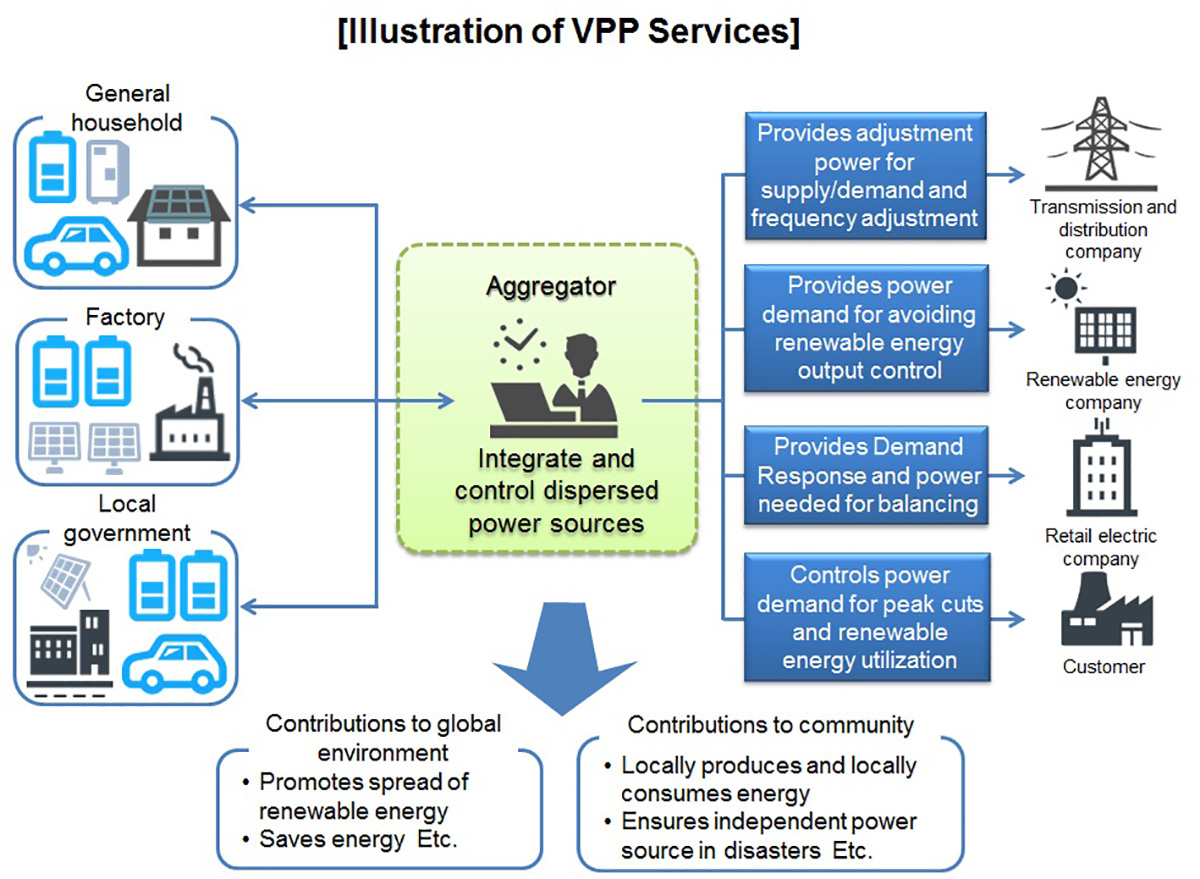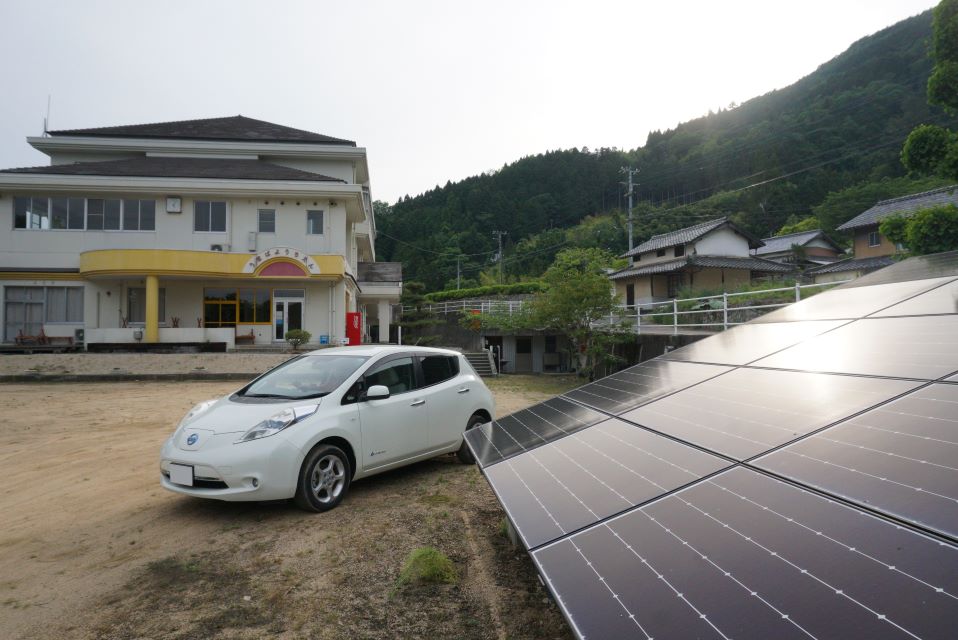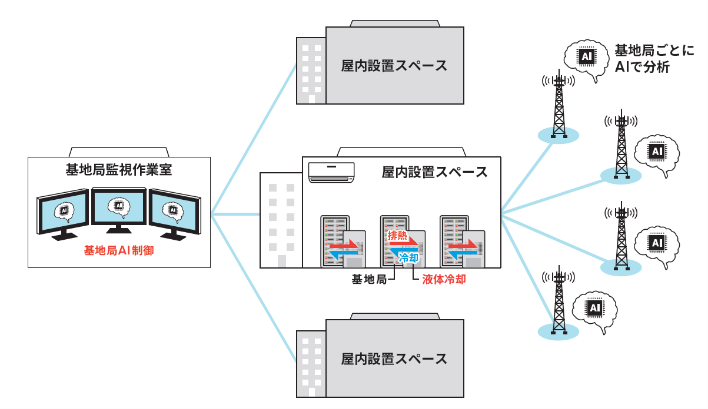The Installation of a Hybrid Battery for Expansion of Renewable Energy Introduction in Oki Islands
The Chugoku Electric Power Company, Incorporated
Outline
On remote islands that are not connected by transmission lines to mainland Japan, like the Oki Islands, the effect due to fluctuation in the amount of energy generated is significant due to the small scale of electricity usage. Therefore, in order to expand the introduction of renewable energy on remote islands, measures are required to establish batteries to adjust the fluctuation in the amount of renewable energy generated.
This project is a plan adopted for subsidization by the Ministry of the Environment in FY 2014* which aims, for the first time in Japan, to introduce a hybrid battery system combining NaS and Li-ion batteries, 2 different types of batteries, to receive a total of 11,000 kW of renewable energy exceeding the Oki Islands' annual minimal demand of 10,000 kW.
*FY 2014 battery demonstration project for promoting the introduction of renewable energy on remote islands
Description
1. Attainment Target in the Challenge
By installing a "hybrid battery system" combining NaS and Li-ion batteries, 2 different types of batteries, we aim to reduce the initial cost, improve system efficiency, and improve charge/discharge management of NaS batteries, while also unifying control of the internal combustion generators and absorbing surplus power and frequency fluctuation as we engage in automated operation, ultimately leading to the expansion of renewable energy introduction.
Furthermore, as we introduce renewable energy, we held open recruitment for businesses with cooperation from the local government, promoting PR activities united with the community.
As a result, we expanded the amount of renewable energy introduced from approx. 2,300 kW before the project started to approx. 8,000 kW over a short period of time.
We will continue to contribute to the reduction of carbon dioxide emissions by promoting the introduction of renewable energy, while ensuring the quality of electricity through the use of the hybrid battery system.
2. Issues to Overcome in Achieving the Challenge
As the Oki Islands are remote islands with an electric system that is not connected to mainland Japan, they are characterized by the small-scale electricity usage and the fact that fluctuation in power demand or energy generation significantly affects the quality of electricity.
With renewable energy such as photovoltaic or wind power, the amount of energy generated significantly fluctuates due to conditions in nature. Therefore, a measure to handle fluctuations in the amount of renewable energy generated using batteries and the like is necessary to further expand the introduction of renewable energy.
3. Detailed Actions
(1) Leading effort for introducing the first "hybrid battery system" in Japan
・ In order to find a low-cost response to both "quick and small fluctuations (short term fluctuations)" and "slow and large fluctuations (long term fluctuations)" in renewable energy generated amounts, we constructed a "hybrid battery system" that combines 2 different types of batteries, the first effort of its kind in Japan.
・ We connected the batteries, diesel power station, and renewable energy facilities to an Energy Management System (EMS) via a communication network, achieving supply-demand operation that automatically controls the batteries and internal combustion generators from the EMS while including data such as the power demand and system frequency, all on a commercial-use power system.
・ We will continue to promote the introduction of renewable energy, while ensuring the quality of electricity through the use of the hybrid battery system.
(2) Efforts united with the community
・ With cooperation from the local government, we held open recruitment for a renewable energy company at the former grounds of the airport and introduced a large-scale mega solar farm.
・ We will continue to promote efforts united with the community by using a special website, PR Hall, and the like to not only introduce this project but also to showcase the beauty of the Oki Islands with the approach of "the fusion of cutting-edge technology and vast nature."
4. Quantitative Effect When the Challenge Is Achieved
・ Improvement in supply stability for electricity
On the Oki Islands that are not connected to mainland Japan by transmission lines, we will improve the stability of electricity on the Oki Islands by installing new renewable energy facilities and batteries.
・ Reduction of burden on global environment
By reducing the amount of energy generated by diesel generation through expanding the introduction of renewable energy, we will cut carbon dioxide emissions and contribute to the prevention of global warming.
・ Increasing community vitality
This project is a leading effort, the first of its kind in Japan, and has been visited by many people.
Partner(s)
Mitsubishi Electric Corporation, NGK Insulators, Ltd., GS Yuasa Corporation
Supplementary information
Our PR website
Oki Hybrid Project
https://www.energia.co.jp/okihybrid/index.html
Other Innovation Challenges
Demonstration and development of the ultimate high-efficiency coal-fired power generation (IGFC)
The Chugoku Electric Power Company, Incorporated
Development of a novel bioprocess to recycle CO2
The Chugoku Electric Power Company, Incorporated
Reusing Coal Ash as Civil Engineering Material Through CO₂ Absorbing Technology Using Microwave Irradiation
The Chugoku Electric Power Company, Incorporated
Technical Development and Popularization of Efficient CO2-Use Concrete
The Chugoku Electric Power Company, Incorporated
VPP Demonstration Project for Reuse Technology of EV Drive Batteries
The Chugoku Electric Power Company, Incorporated
Similar Innovation Challenges
Accelarating the penetration of renewable energy resources with “Open Energy System”
Sony Group Corporation
Achieving net-zero carbon emissions from plant factories using full artificial lighting
Taikisha Ltd.
Advanced technology for buildings providing energy-saving and comfortable indoor environment (under Net Zero Energy condition)
Mitsubishi Electric Corporation
AI control reduces base station power consumption by up to 50%
KDDI CORPORATION



